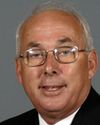That is right, Mr. Speaker. They were all sent there to fight for their country, but they are not all getting the opportunity to go back there and be thankful for the fact that they did not die on those beaches.
It is all very well and good, but another day has gone by and now there are only 24 days left before the start of D-Day celebrations in Normandy. The minister, only after coming under severe pressure, has indicated that he is going to send more than the 60 he originally planned to send.
With the days quickly passing by and this government able to toss out billions of dollars in pre-election promises, why can the minister not simply tell us how many more veterans are going to D-Day celebrations? They were sent there to fight for this country 60 years ago. They have the right to go back and--










